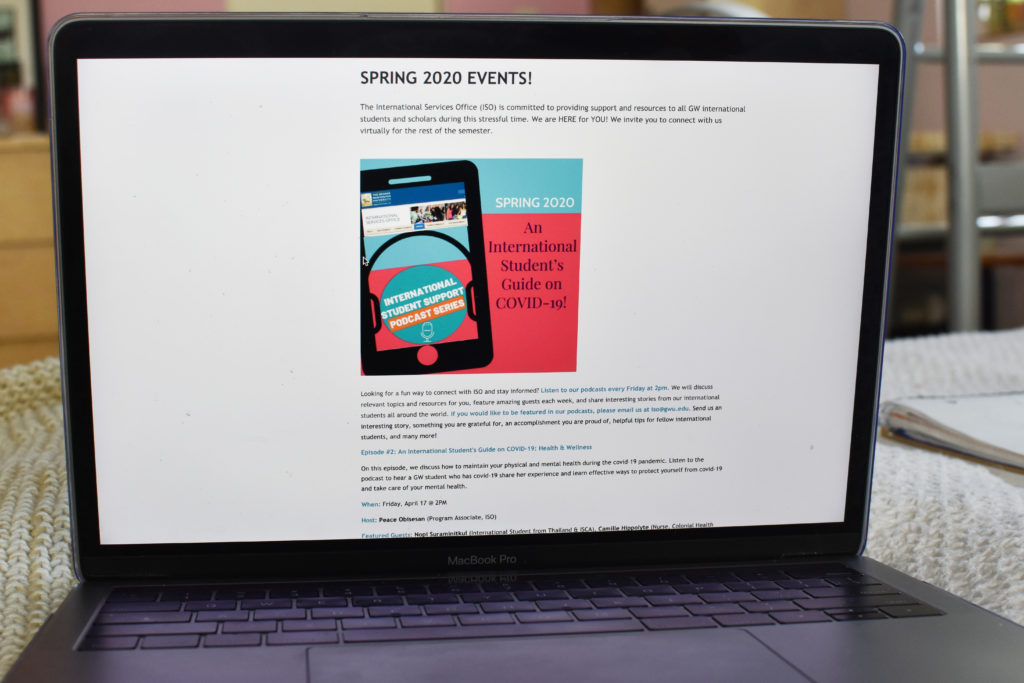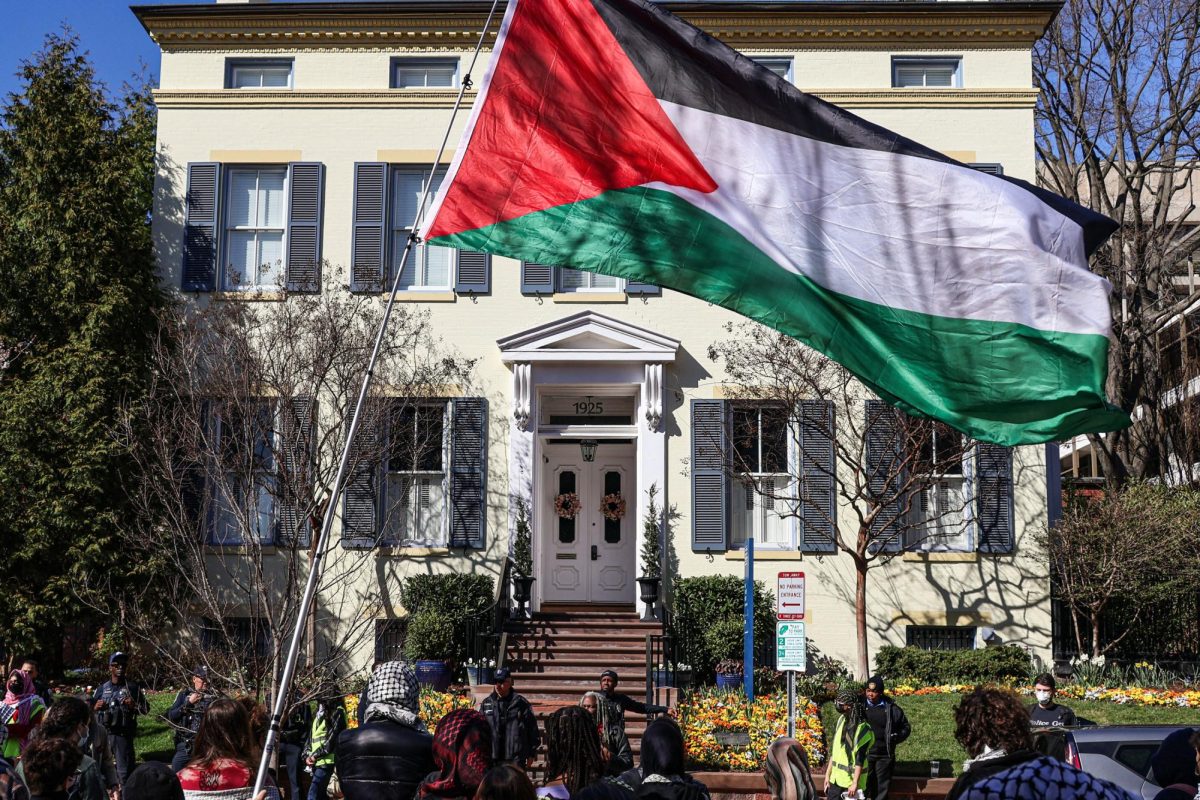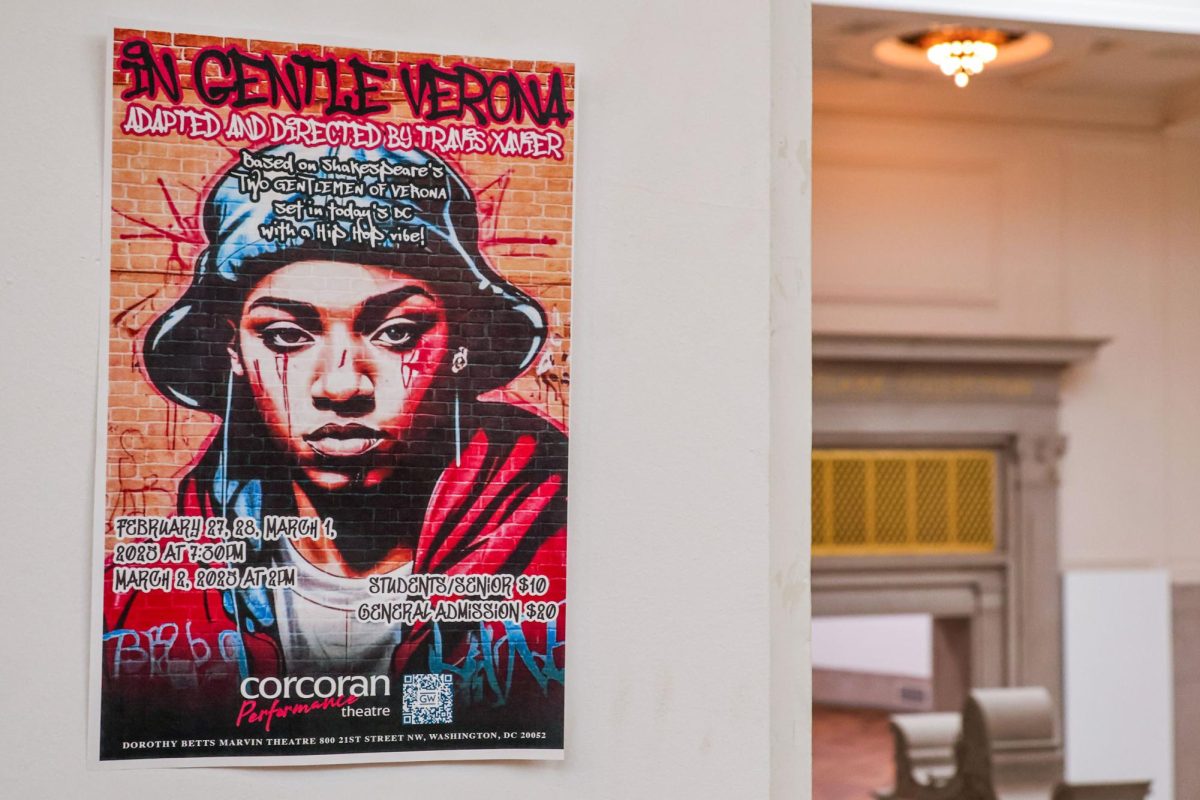The International Services Office released its first-ever podcast last week to update students about office resources and feature international students’ perspectives on life at GW.
The International Student Support Series Podcast – produced by ISO staff and International Student Community Ambassadors – will feature students and experts from the academic success office, mental health services and the Colonial Health Center, ISO officials said. The podcast will share student stories and advice for finding resources in “unprecedented times” like the COVID-19 pandemic, they said.
“The theme of the podcast series is specific in response to COVID-19 and addresses topics that are relevant to the international student community at this time, including immigration regulation updates, health and wellness, academic success, career and professional development,” ISO director Jennifer Donaghue and Peace Obisesan, the podcast creator and program associate, said in an email.
The office will publish four episodes on the ISO website throughout the remainder of the semester, the two officials said. The ISO office will release an episode every Friday at 2 p.m., and a different office member and student ambassador will co-host each episode, Donaghue and Obisean said.
“We do this to expose our listeners to the uniqueness of the ISO team,” the two officials said. “The staff members and international student community ambassadors have different backgrounds, experiences and perspectives, and each host brings their individual touch to each episode.”
The ISO hosts more than 80 events throughout the year, like employment training workshops and advising sessions, centered around topics like orientation and adjustment, immigration support and career services.
Edward Jahng, the president of the GW International Student Association from South Korea, said the podcast should include segments dedicated to tips for employment and social resources in D.C. – like how to navigate the Metro – to help international students adjust to University life.
“I didn’t know what the culture was like or what kind of resources were available throughout the city,” Jahng said. “Of course, knowing what your University resources are on campus is important. So I think that’s a given they should have that on there.”
The ISA collaborated with the Student Association in 2018 to create the International Friendship Portal, which connects international underclassmen with upperclassmen. The portal allows international students to schedule a session with a mentor to chat if they are struggling with academic or social life.
Jahng said the podcast could adopt a series of one-to-two minute segments instead of longer episodes so students can listen to a quick clip of advice, like the minute briefings in the Wall Street Journal. He said students may not have time for a 30-minute episode if they are focused on online classes and transitioning to life back home.
“Everybody’s trying to figure things out, and so 30 minutes might be a little bit hard for students to listen in,” Jahng said.
Min Wong, an international student from Taiwan and a peer mentor for the International Friendship Portal, said the podcast is an outlet for international students abroad to remember their ties to GW and hear about resources available to students during the pandemic. She said the podcast should be advertised to incoming students before classes begin so they can feel more connected with GW before arriving on campus.
“If the podcast is available to incoming students before they get to GW, maybe it will be a bigger help in terms of easing the anxiety before coming – I think that would be great,” Wong said.
She said the podcast could provide a segment about diverse varieties of D.C. restaurants to relieve homesickness because the lack of familiar cuisine can be a big stressor for international students.
“This is great for domestic students as well but definitely restaurants because I think missing food from back home is a big one for nostalgia and missing home for a lot of students,” Wong said.
SA Sen. Hanining Bao, ESIA-U, said podcast participants discussing the different cultures of international students can help the episodes reach a wider audience.
“It is very important to realize not all the international students are the same,” Bao said in an email. “Chinese students are very different from French students as well as their problems.”
He said he still has trouble speaking English because he grew up speaking two other Chinese languages. The podcast can help international students practice listening to the English language, Bao said.
“English is a language that requires practice – listening, reading, writing and speaking are four aspects that international students need to combat with,” he said. “Broadcasts can only improve their listening skills.”








